Operation Eyesight Universal
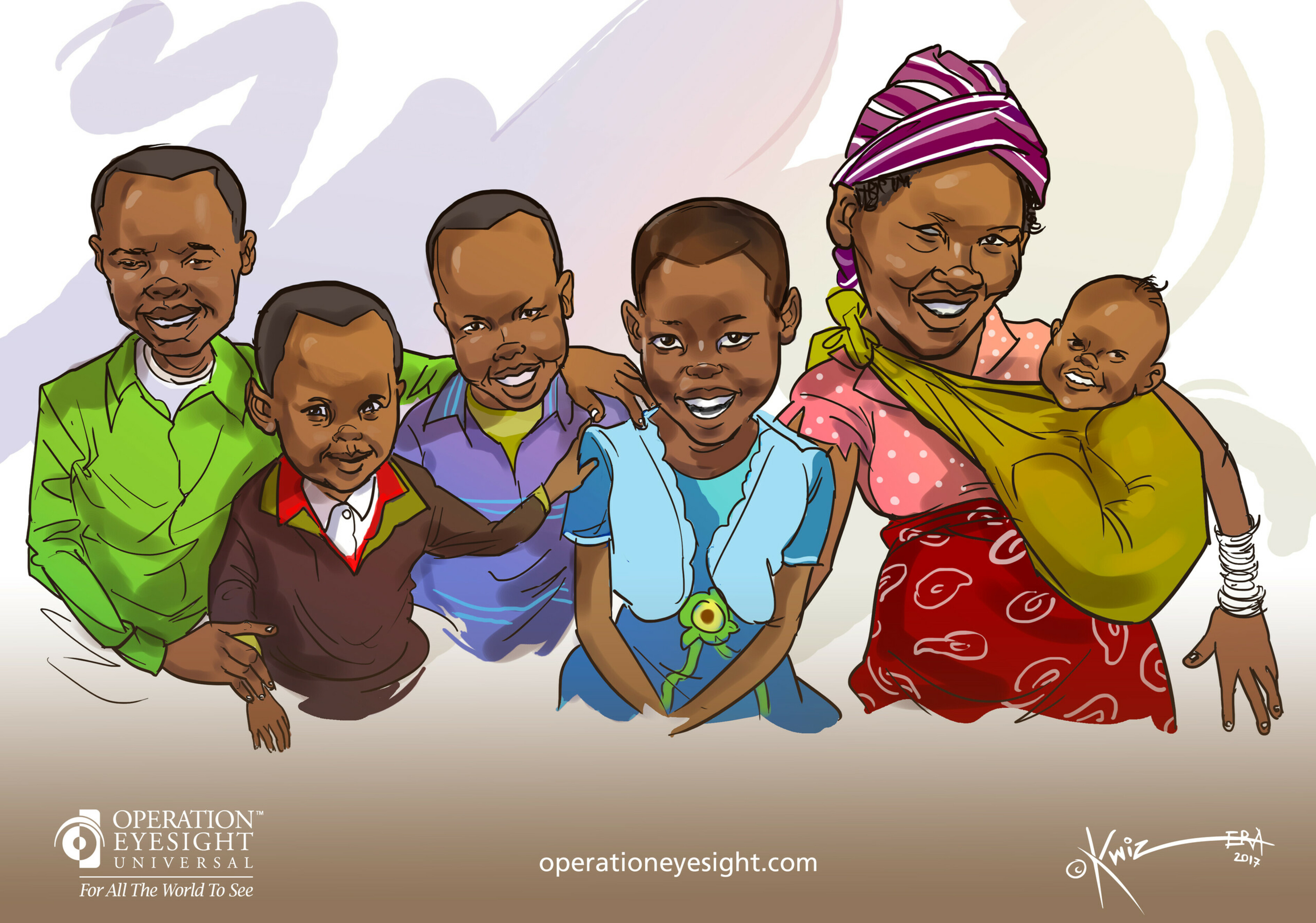
Ruth: Mama, I just can’t see the blackboard at school, and I already sit right in front of it. I’m 12 years old and still can’t read or write.
Ruth’s thoughts: Teacher Elizabeth keeps saying I must repeat my classes and that I’m a slow learner. Everyone laughs at me. They must think I’m dumb. I hate going to school.
Mother: I know it’s difficult Ruth, but let’s talk to your teacher and see what else we can do. I know you can’t see that well, but you’re not a slow learner.
Mother’s thoughts: I feel helpless. I just don’t know what to do for you.
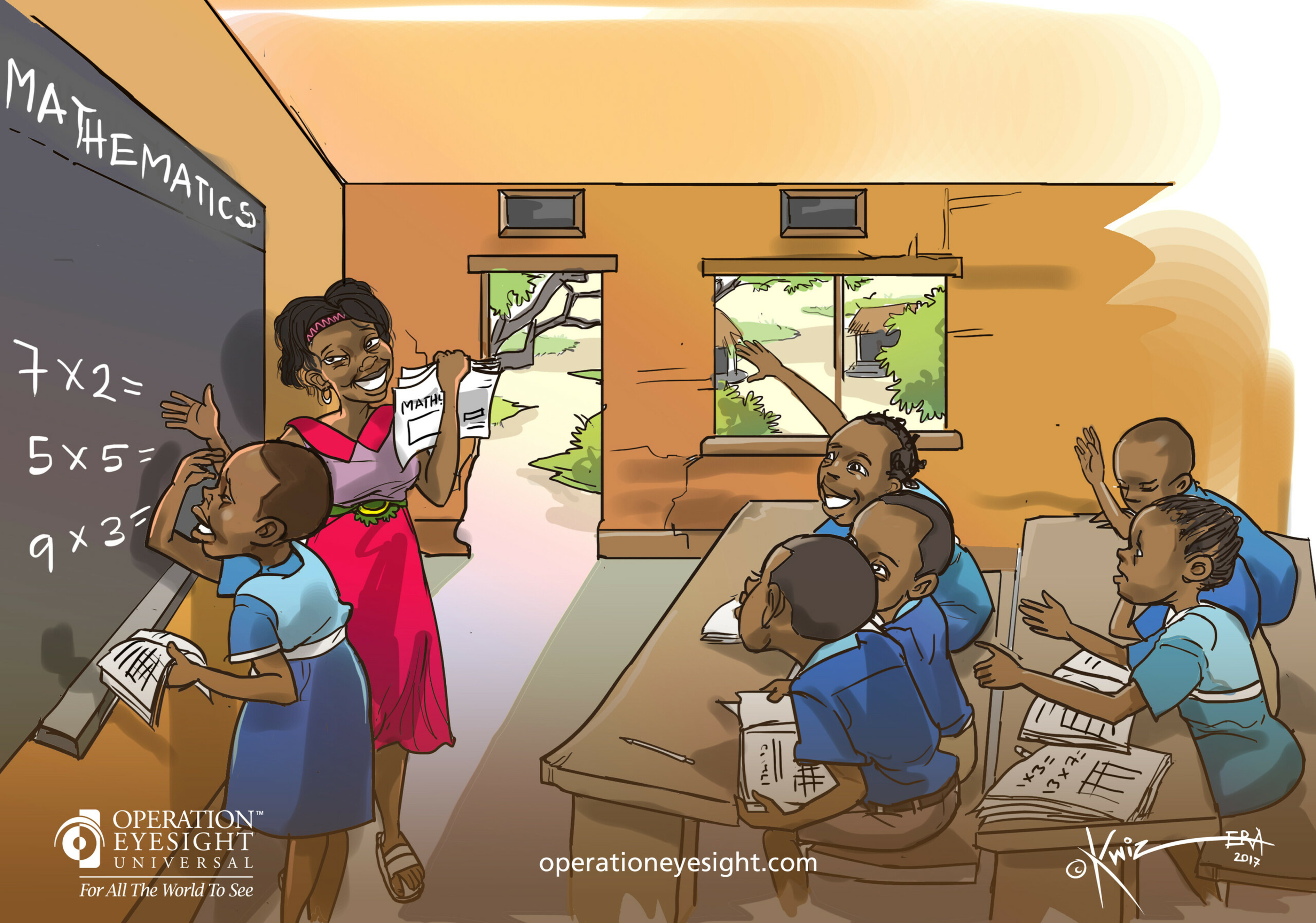
At home later that evening, Ruth’s parents discuss her struggles.
Mother: Teacher Elizabeth says that Ruth has fallen far behind in school. She still can’t read or write.
Father: Well, maybe she should stay home and help you look after the house and little ones. It’s not what we want for her, but she can’t stay in school if she’s not learning.
Mother: But if she can’t see at school, she can’t see at home.
Father: That’s true, but she will be more use at home, and we can’t keep our sons home from school.
Father’s thoughts: This makes me sad. I know my little girl is smart. But what can we do?
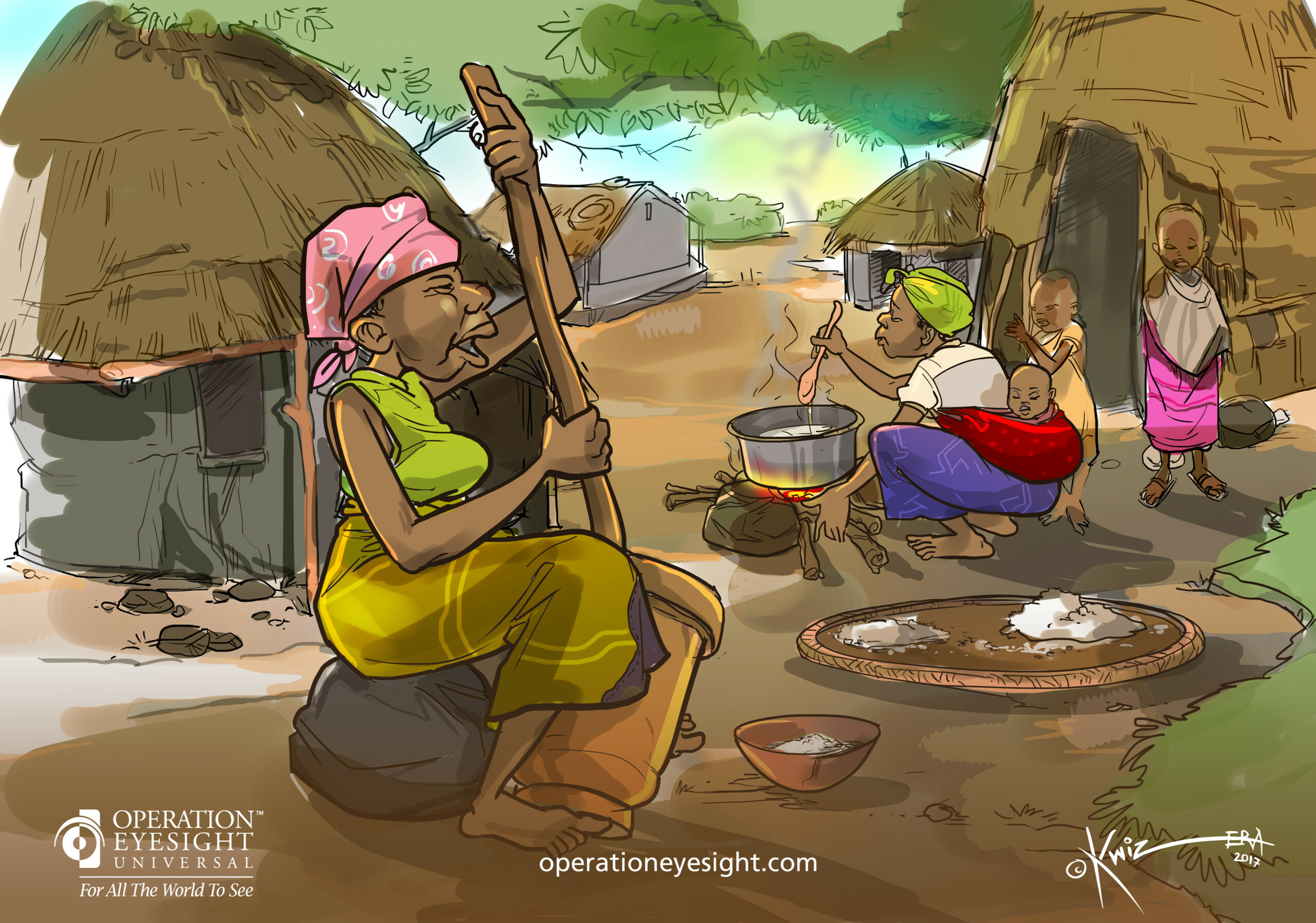
Ruth’s mother visits Teacher Elizabeth.
Mother: Good morning, Teacher Elizabeth. Ruth is having trouble seeing the blackboard and I’m wondering if you can move her closer to the front.
Teacher: Madam, moving Ruth to the front won’t help. She needs her vision tested.
Mother: But two of my other children have problems with their eyesight. I’ve had eye issues as well. We’ve all made do. Surely Ruth can do the same.
Mother’s thoughts: It’s costly to have our eyes treated, and with six children to feed, clothe, and send to school, there’s no money left over for treatment.
Mother: There’s an eye screening camp in our village today, Ruth! I think we should all go. The lady who mentioned it to me is a community health worker, and she suggested we go and have our eyes tested. It’s free for everyone.
Ruth: Really, Mama? Yes, I want to go.
Ruth and her mother visit the hospital.
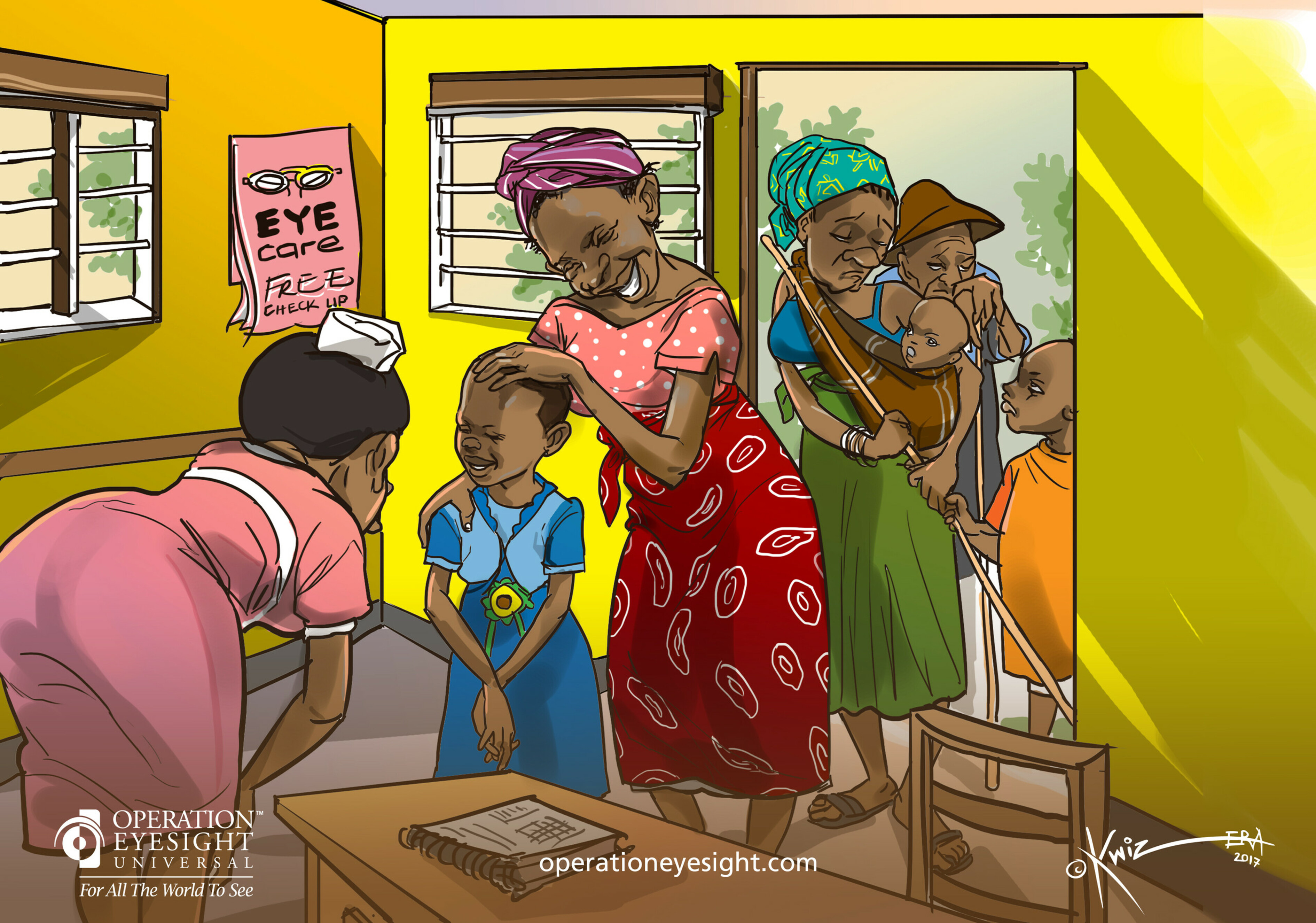
Nurse: Welcome madam. Hello Ruth. I’m Ms. Carolyn, and I’m an ophthalmic nurse.
Mother: Hello nurse. How much does it cost us to have Ruth’s eyes tested?
Nurse: It’s free for you.
Mother: Really? Free to help Ruth see again?
Nurse: Yes! Thanks to donations to Operation Eyesight from people in Canada, we help restore sight for people like Ruth every day.
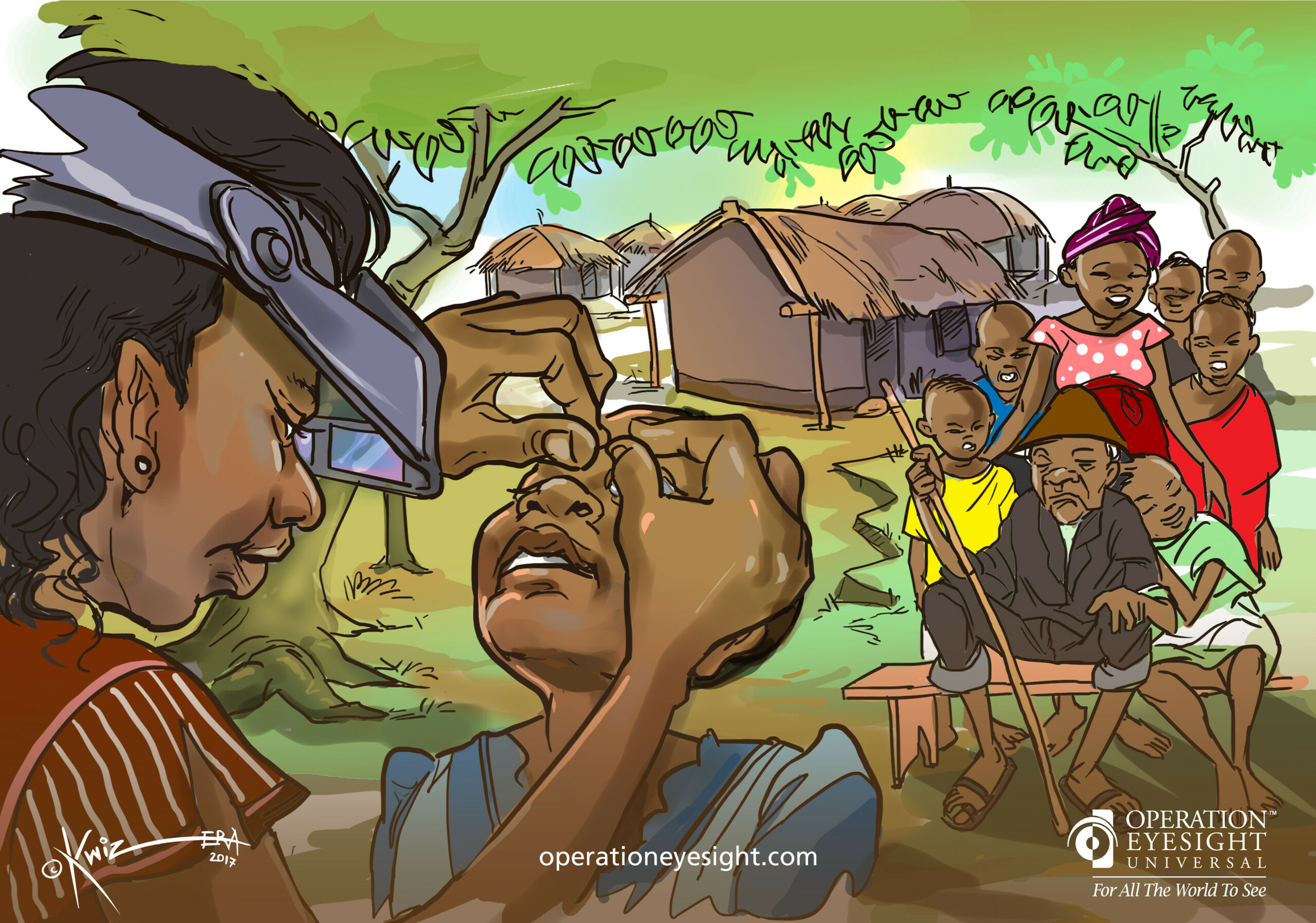
Nurse: Can I shine this light in your eyes to see them more clearly, Ruth? Well, you have bi-lateral cataract, which is a clouding over of the lens of your eyes, causing your blindness. It’s very straightforward to correct, and can be done today!
Ruth’s thoughts: I can sit anywhere now because I can see much better. And to think I was ready to drop out of school! I’m so happy and thankful for the nurses at the hospital, and for all the people in Canada who’ve helped me to see again!
Mother’s thoughts: Our little girl can see the world around her. It’s a dream come true; our hope is renewed. The gift of sight is also the gift of a brighter future.
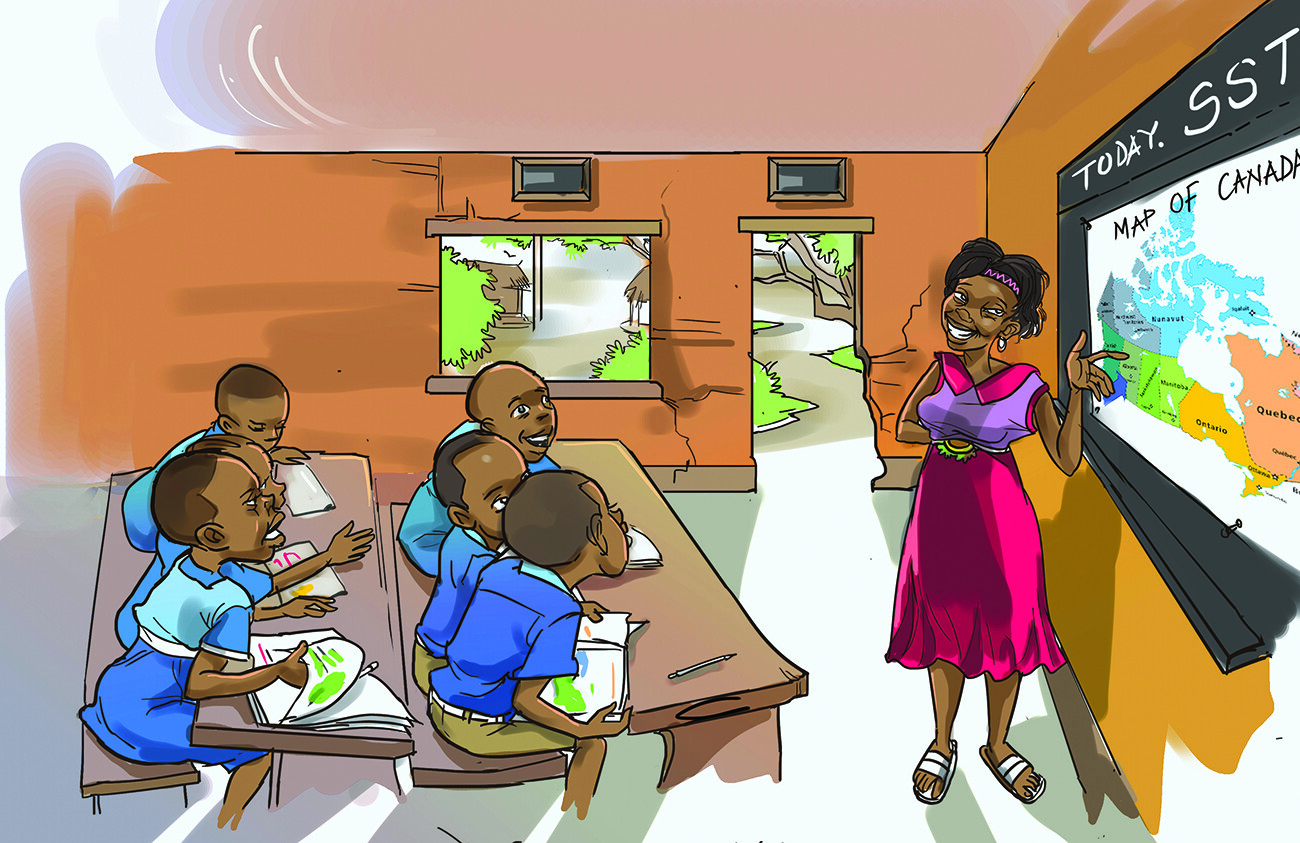
The events in this story are fictional, but inspired by real situations. Many people in the developing countries where we work suffer from avoidable blindness, like the blindness caused by Ruth’s condition. Our goal at Operation Eyesight is to one day eliminate avoidable blindness. Thanks to many generous donors, our work to prevent blindness and restore sight is transforming lives and entire communities around the world.
Alex Kwizera is a Ugandan painter and illustrator of Rwandan origin. As a child growing up in rural Uganda — always scribbling drawing in his exercise books — he was discouraged by his teachers from pursuing his dream of becoming an artist. Deep in his bones, though, he felt that he was born to be creative. Kwizera has built a name for himself in Uganda and abroad through his comics, murals, live paintings, and children’s books. He thrives on the kind of work that allows him to combine history and current affairs to produce both social and political commentary, as well solidarity projects that allow him to engage with communities near and far.
Follow Kwizera on Twitter @kwiz_era and Facebook: Kwiz Era
Are you a teacher? ACGC has developed an English Language Arts Lesson Plan for “Restoring Sight, Transforming Lives.” In this lesson, students will explore how dialogue can be used to tell a story, and apply the technique when writing their own original text. Through using a story about healthcare in a fictional Kenyan setting, students will also gain an understanding of life in developing countries, and the work that Alberta organizations do to assist those in need.